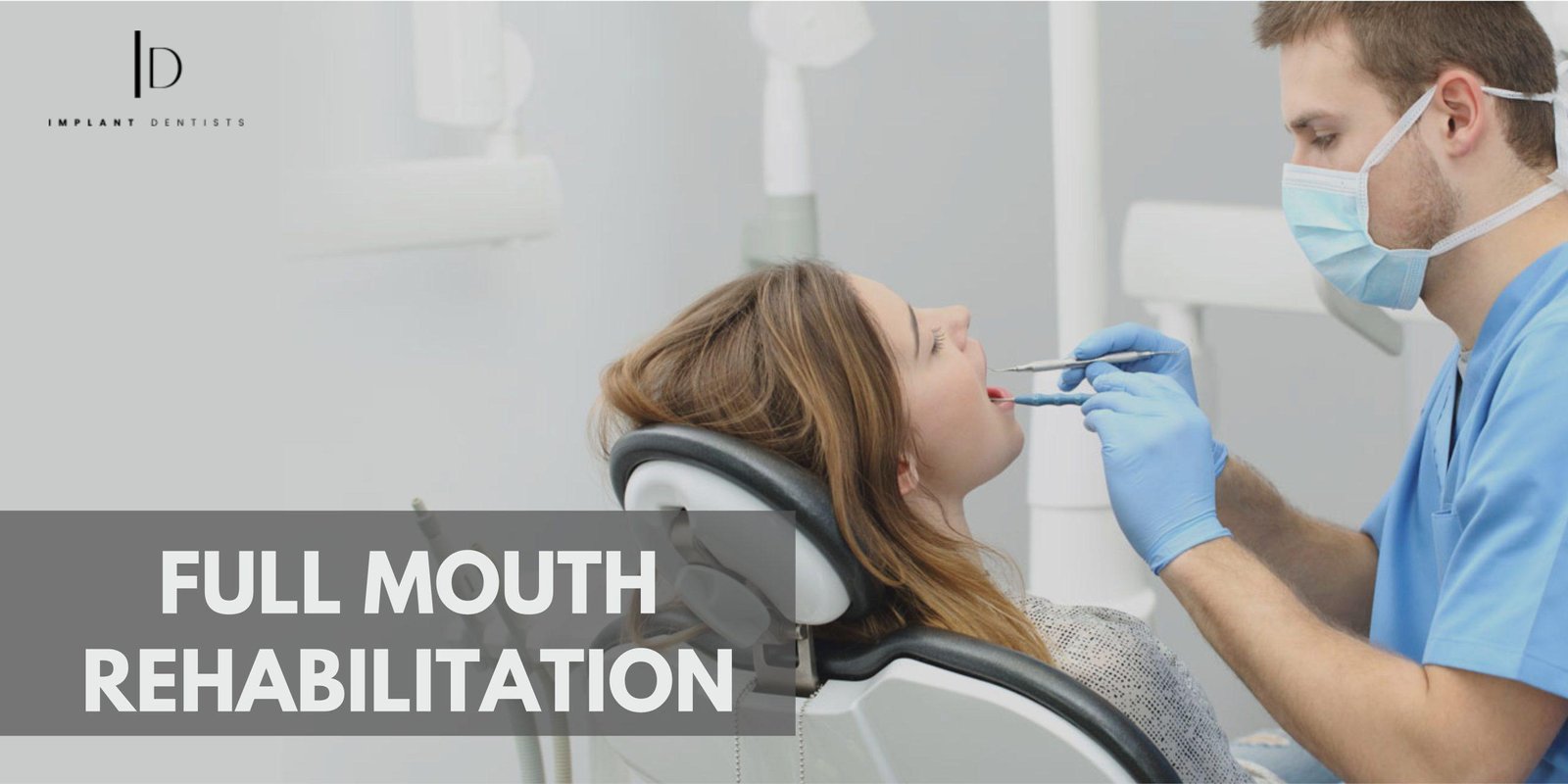Tag: complete dental transformation

Implant Solutions for a Radiant Smile| Full Mouth Rehabilitation in Crewe, United Kingdom
January 16, 2024Full mouth rehabilitation is a comprehensive dental treatment that aims to restore oral health and functionality. In recent years, dental implants have played a pivotal role in revolutionizing full mouth rehabilitation procedures, offering patients in Crewe, United Kingdom. A lasting solution to various dental issues. Now, we explore the significance of implants in full mouth rehabilitation. The benefits they bring to individuals seeking a complete dental transformation.
Understanding Full Mouth Rehabilitation
Full Mouth Rehabilitation, also known as full mouth restoration, is a comprehensive and personalized dental procedure designed to address multiple dental issues. It restores optimal oral health, function, and aesthetics. This advanced and transformative treatment involves a meticulous combination of various dental procedures. This tailored to the unique needs of each individual.
Patients seeking Full Mouth Rehabilitation often present with a range of dental concerns, such as missing teeth, extensive tooth decay. Worn-down enamel, gum disease, bite problems, or a combination of these issues. The primary goal of Full Mouth Rehabilitation is to provide a holistic and integrated approach to address these concerns. This is ultimately enhancing both the functionality and appearance of the entire mouth.
Explore Dental Implants
Dental implants are artificial tooth roots that are surgically placed into the jawbone to support replacement teeth or bridges. There are several types of dental implants, classified based on various factors such as implant design, materials used, and the surgical procedure.
Here are some common types of dental implants:
- Single Tooth Implants: Used when a single tooth is missing, a single implant is placed into the jawbone, and a crown is attached to it.
- Multiple Tooth Implants: Used when several adjacent teeth are missing, implant-supported bridges are anchored to implants rather than natural teeth.
- Full Arch Implants: These are used when an entire arch of teeth (upper or lower) needs to be replaced. All-on-4 refer to the number of implants used to support a full arch of teeth.
- Zygomatic Implants: These implants are longer and are anchored into the cheekbone (zygoma) instead of the jawbone. They are used when there is insufficient bone in the upper jaw.
- Mini Implants: Smaller in diameter than traditional implants, mini implants are often used in situations where there is limited space or bone.
The Role of Implants in Replacing Missing Teeth
Dental implants play a crucial role in replacing missing teeth. This providing a durable and natural-looking solution for individuals with one or more missing teeth. The process involves surgically placing a metal post into the jawbone. It serves as a stable anchor for a replacement tooth or a bridge.
Here are key aspects of the role of implants in replacing missing teeth:
- Stability and Support: Dental implants offer stability and support comparable to natural teeth. The implant fuses with the jawbone through a process called osseointegration, creating a strong foundation for the replacement tooth.
- Improved Functionality: Unlike removable dentures, dental implants function like natural teeth. They allow for normal biting, chewing, and speaking, providing a higher level of comfort and functionality.
- Preservation of Jawbone: When a tooth is lost, the jawbone in that area can start to deteriorate over time due to lack of stimulation from chewing. Dental implants help preserve the jawbone by acting as artificial tooth roots and preventing bone loss.
- Natural Appearance: Implants are designed to look and feel like natural teeth. The replacement tooth, also known as a crown, is custom-made to match the colour, shape, and size of the surrounding natural teeth, ensuring a seamless and natural appearance.
- Longevity: With proper care and maintenance, dental implants have a high success rate and can last for many years, even a lifetime. This makes them a durable and long-term solution for replacing missing teeth.
Benefits of Implants in Full Mouth Rehabilitation
- Enhanced Aesthetics and Confidence: Implants provide a natural-looking appearance, restoring not only the functionality of the teeth but also the aesthetics. This, in turn, boosts confidence and self-esteem for individuals undergoing full mouth rehabilitation.
- Improved Oral Functionality: Dental implants allow for improved chewing and speaking abilities, providing patients with a level of comfort and functionality comparable to natural teeth.
- Long-Term Durability: One of the significant advantages of dental implants is their long-term durability. With proper care, implants can last a lifetime, making them a cost-effective and sustainable choice for full mouth rehabilitation.
- Stability and Strength: Dental implants provide a stable and strong foundation for the replacement of multiple teeth. This stability is crucial in full mouth rehabilitation, where the goal is to restore the entire dentition.
- Natural Feel and Functionality: Implants mimic the natural function and feel of teeth. This is particularly important in full mouth rehabilitation, as patients aim to regain the ability to bite, chew, and speak comfortably. Just like they would with natural teeth.
Conclusion:
In Crewe, United Kingdom, dental implants have become an integral part of full mouth rehabilitation, offering patients a transformative solution to various dental challenges. The combination of advanced technology and skilled dental professionals ensures that individuals seeking full mouth rehabilitation in Crewe can enjoy the benefits of a restored smile. This improved oral health, and enhanced overall well-being.
